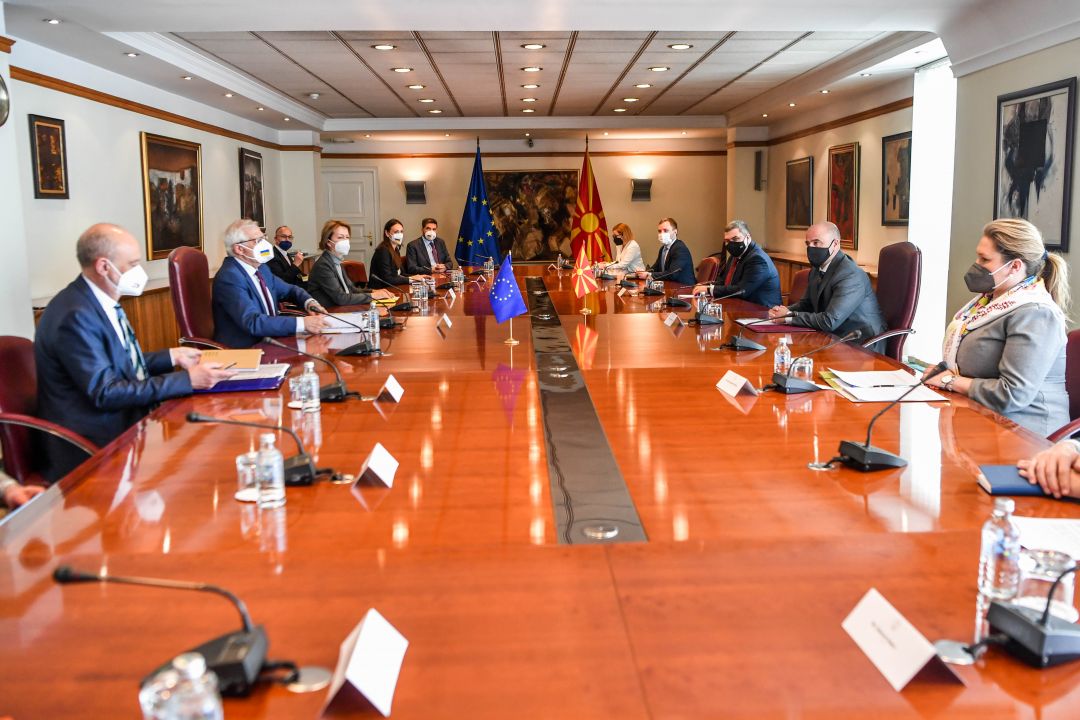The Prime Minister of the Republic of North Macedonia Dimitar Kovacevski received the High Representative of the European Union for Foreign Affairs and Security Policy and Vice President of the European Commission, Josep Borrell, who is on a working visit to our country and was accompanied by the Ambassador and Head of the EU Delegation to North Macedonia, David Geer.
Prime Minister Kovacevski and EC Vice President Borrell had a tete-a-tete meeting followed by a bilateral meeting of the two delegations, attended by Deputy Prime Minister for European Affairs Bojan Maricic and Minister of Defense Slavjanka Petrovska.
At the meeting, Prime Minister Kovacevski thanked the EU High Representative for Foreign Affairs and Security Policy and Vice President of the European Commission, Josep Borrell, for his continued and strong personal commitment and support for the Republic of North Macedonia for receiving a negotiations date without further delay and for the future of the Western Balkans in the European Union.
The participants at the meeting once again condemned Russia's unprovoked and unjustified war in Ukraine, causing tectonic geopolitical shifts that require everyone in Europe to act in unity, firmly and in a timely manner.
During the discussions it was stressed that the Government, with the support of the EU, continues with the reforms and their implementation in the combat against corruption, rule of law, digitalization and the green agenda.
Prime Minister Kovacevski and the EU High Representative for Foreign Affairs and Security Policy and Vice President of the European Commission Josep Borrell stressed the need for rapid action towards achieving the strategic interest of EU enlargement to the Western Balkans region as a priority for the European security.
In that regard, the progress in the discussions between North Macedonia and Bulgaria on finding a dignified and victorious European formula that would unblock the start of North Macedonia's EU Accession Negotiations was welcomed, with the interlocutors stressing out that bilateral issues should not complicate the process.












